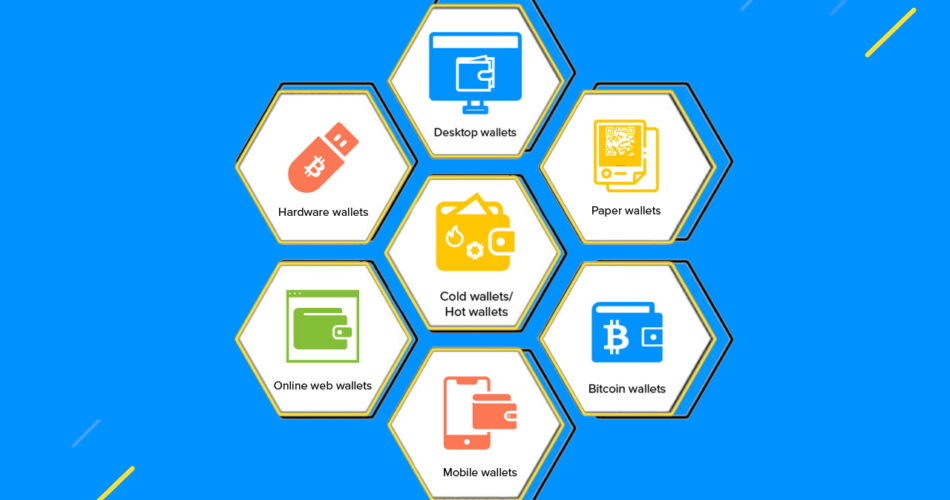In the ever-evolving world of cryptocurrencies, understanding the types of crypto wallets is paramount for anyone looking to dip their toes in this digital ocean. This comprehensive guide will walk you through the seven main types of wallets, their pros and cons, and how to choose the one that suits your needs best.
Table of Contents
Understanding Cryptocurrency Wallets
A cryptocurrency wallet is a digital wallet that allows users to manage their cryptocurrencies. It’s akin to a digital bank account where you can send, receive, and manage your digital currency. But unlike traditional bank accounts, these wallets can be as diverse as the cryptocurrencies they hold.
Types of Cryptocurrency Wallets
Understanding the different types of cryptocurrency wallets is crucial for anyone involved in the crypto space. Each type of wallet offers a unique combination of security, convenience, and functionality. Let’s delve deeper into the seven main types of crypto wallets.
General Chart with the Types of Crypto Wallets
| Type of Wallet | Key Difference | Example of Wallet |
|---|---|---|
| Hardware Wallets | These wallets store a user’s private keys on a hardware device like a USB. They are immune to computer viruses and are quite secure because they can be kept offline. | Ledger, Trezor, Tangem |
| Software Wallets | These wallets are applications that can be installed on a computer or mobile device. They are more convenient for daily use but are less secure than hardware wallets. | Exodus, Mycelium |
| Online / Hot Wallets | These wallets run on the cloud and are accessible from any computing device in any location. They are more convenient to access but the user’s private keys are stored online and controlled by a third party. | Trust Wallet, Coinbase |
| Mobile Wallets | These are apps on your phone and are useful because they can be used anywhere including retail stores. Mobile wallets are usually much smaller and simpler than desktop wallets. | Trust Wallet, Mycelium |
| Desktop Wallets | These wallets are downloaded and installed on a PC or laptop. | Exodus |
| Paper Wallets | These wallets are easy to use and provide a very high level of security. The term paper wallet can simply refer to a physical copy or printout of your public and private keys. | Github |
| Browser Extension Wallets | These wallets are similar to software wallets but are designed to be lightweight and easy to use. They enable quick transactions on web pages and can interact with a variety of blockchains. | MetaMask |
1. Online / Hot Wallets
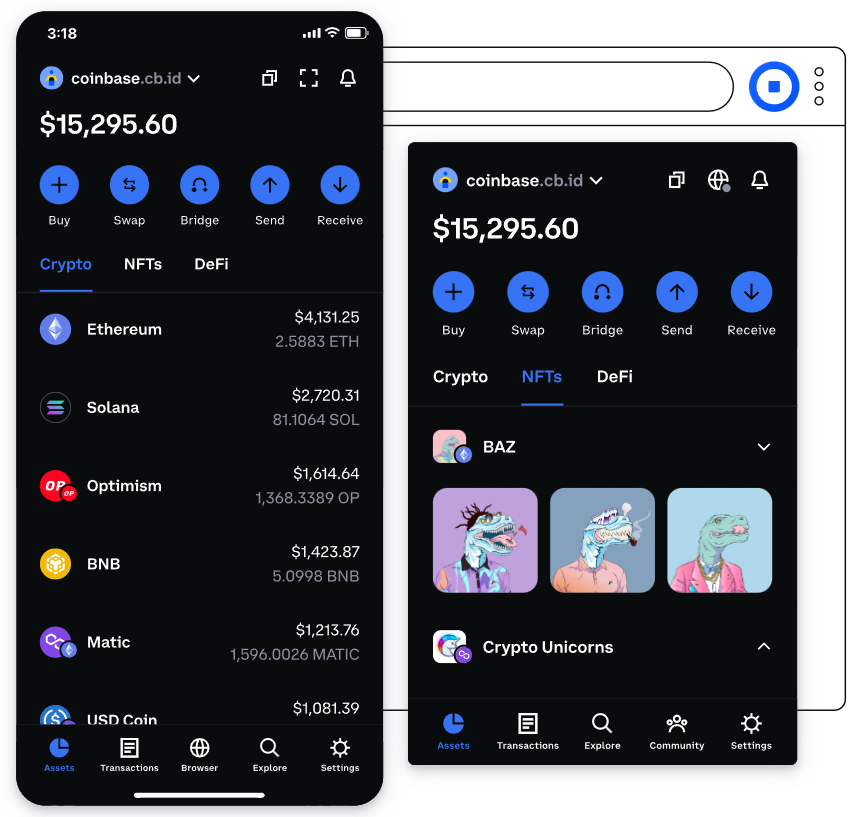
Hot wallets are digital wallets that are always connected to the internet. They are called ‘hot’ because of their online nature, much like a hot meal is ready to be served immediately. These wallets are easy to set up and use, making them ideal for beginners and for those who trade cryptocurrencies regularly. However, their constant internet connection makes them vulnerable to online threats like hacking and phishing attacks.
| Pros | Cons | Examples |
|---|---|---|
| Easy to use | Less secure | Coinbase, Binance |
| Quick transactions | Vulnerable to online threats |
2. Desktop Wallets
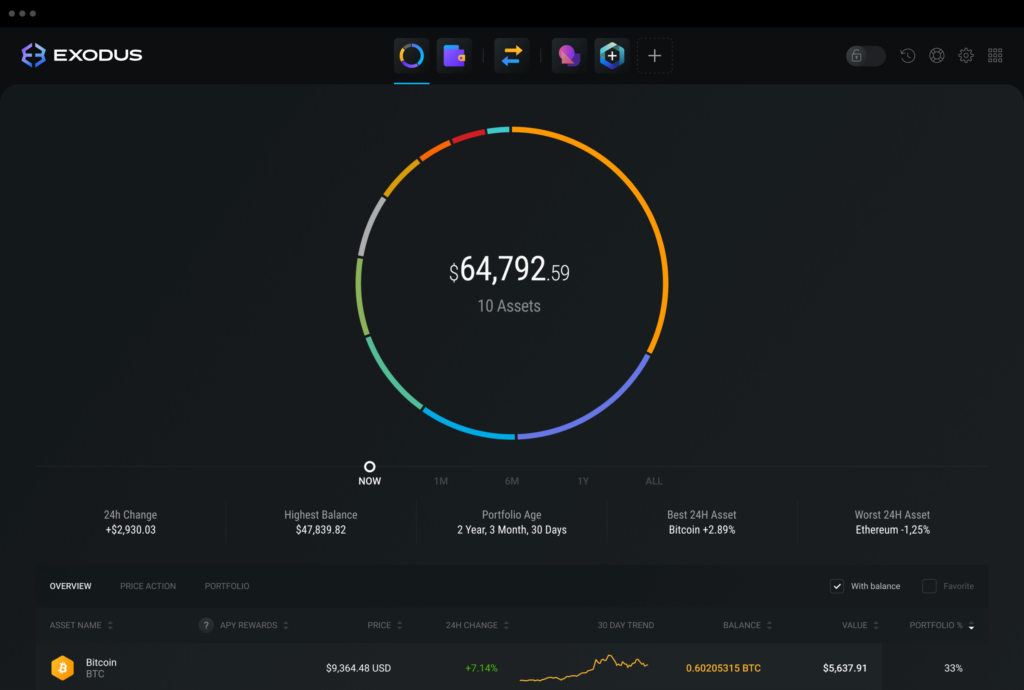
Desktop wallets are a type of software wallet that you download and install on your personal computer. They offer a good balance between convenience and security, making them a popular choice for many cryptocurrency users.
One of the key advantages of desktop wallets is that they give you complete control over your private keys and, therefore, your cryptocurrency assets. This is because the private keys are stored locally on your computer and are not shared with a third party, unlike some other types of wallets.
| Pros | Cons | Examples |
|---|---|---|
| More secure than online wallets | If the computer is hacked or gets a virus, the wallet may be at risk | Exodus |
| Full control over keys and funds | Can take up significant space on the computer |
3. Hardware / Cold Wallets
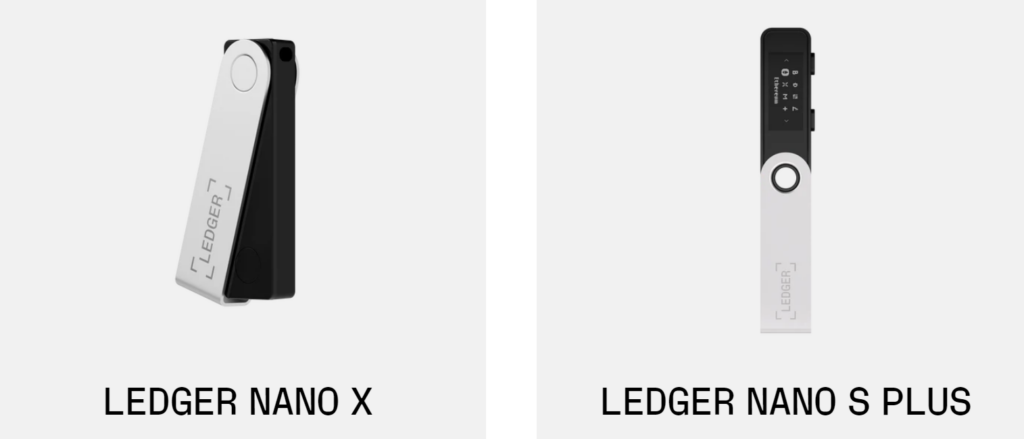
Hardware wallets are a type of cold wallet that store your private keys on a hardware device, such as a USB stick. These devices are immune to computer viruses and are considered one of the most secure ways to store cryptocurrencies. They can be used to make transactions, but the private key never leaves the device, making it very secure. However, like other forms of cold storage, they are less convenient for frequent trading or spending.
| Pros | Cons | Examples |
|---|---|---|
| Extremely secure | Can be lost or stolen | Ledger, Trezor |
| Ideal for storing large amounts | More expensive |
4. Software Wallets
Software wallets are applications that you can download onto your computer or smartphone. They store your private keys on your device and can be a good balance between the convenience of hot wallets and the security of cold wallets. However, they are only as secure as the device they are installed on. If your device gets infected with malware, your wallet could be at risk. Examples of software wallets include Exodus and Electrum.
| Pros | Cons | Examples |
|---|---|---|
| Convenient | Vulnerable to malware | Exodus |
| Free or inexpensive | Depend on device security |
5. Mobile Wallets
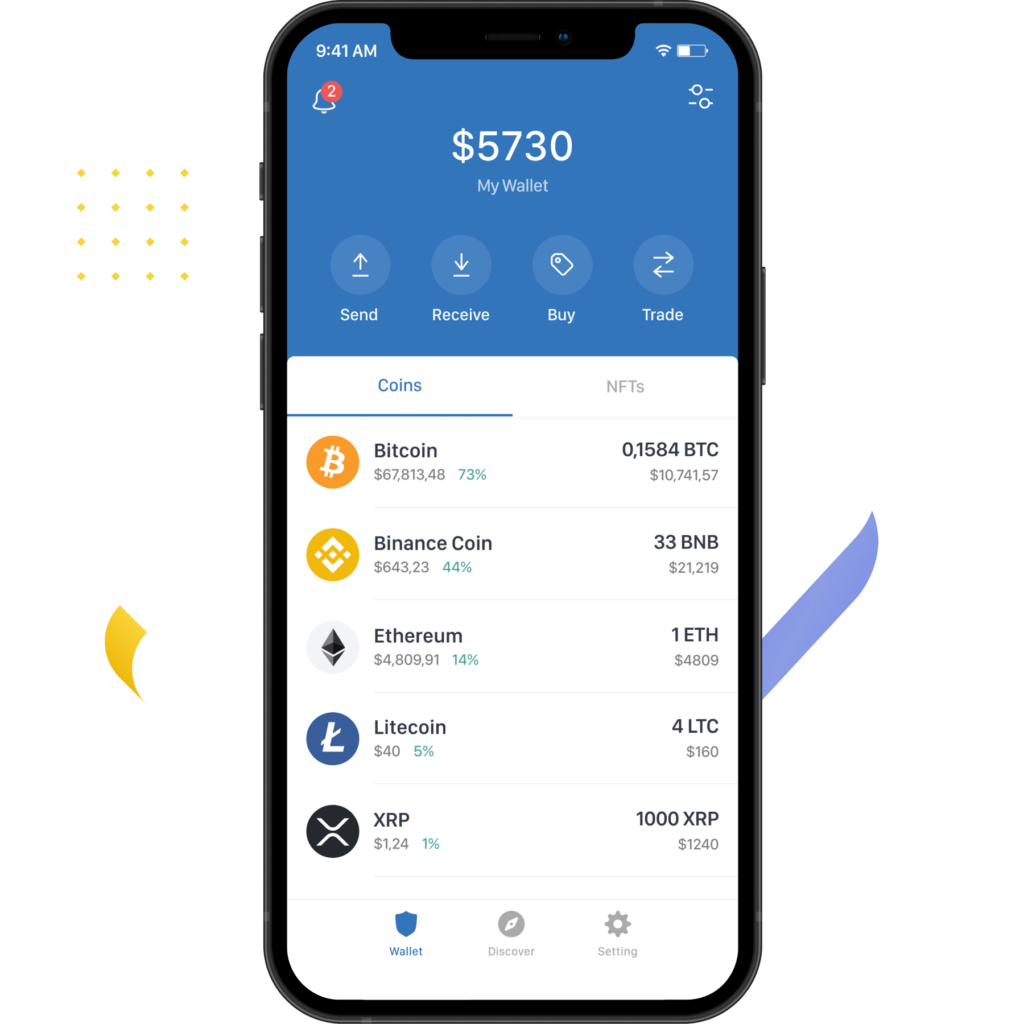
Mobile wallets are a type of software wallet designed specifically for smartphones. They offer the convenience of being able to manage your cryptocurrencies on the go. Many mobile wallets also include additional features like the ability to scan QR codes for quick and easy transactions. However, they share the same security risks as other software wallets. If your phone is lost, stolen, or infected with malware, your wallet could be at risk.
| Pros | Cons | Examples |
|---|---|---|
| Highly convenient | Vulnerable to phone loss | Trust Wallet, Mycelium |
| Extra features | Depend on device security |
6. Paper Wallets

Paper wallets are a form of cold storage where your private and public keys are printed on a piece of paper. This can be a secure way to store cryptocurrencies as they are immune to online attacks. However, they can be difficult to set up correctly, and if the paper is lost or damaged, your cryptocurrencies could be lost forever. It’s also worth noting that using a paper wallet for transactions can be more complex than other types of wallets.
| Pros | Cons | Examples |
|---|---|---|
| Highly secure | Can be lost or damaged | Github |
| Immune to online threats | Inconvenient for regular use |
7. Browser Extension Wallets

Browser extension wallets are a type of hot wallet that operate as an extension on your web browser. They offer a high level of convenience, allowing users to easily access and manage their cryptocurrencies directly from their browser. This makes them particularly useful for interacting with decentralized applications (dApps) and conducting transactions on the web.
However, like other hot wallets, browser extension wallets are always connected to the internet, making them more vulnerable to online threats such as hacking and phishing attacks. It’s also important to note that the security of a browser extension wallet can be compromised if the computer it’s installed on is infected with malware.
| Pros | Cons | Examples |
|---|---|---|
| Convenient for interacting with dApps | Vulnerable to browser hacks | MetaMask |
| Easy to use | Depend on browser security |
Each type of wallet has its strengths and weaknesses, and the best choice depends on your individual needs and circumstances. It’s also worth noting that it’s possible to use multiple types of wallets. For example, you might use a hot wallet for daily trading and a cold wallet for long-term storage.
Conclusion
Navigating the world of cryptocurrencies can be a daunting task, especially when it comes to the security and management of your digital assets. The first step towards a secure crypto journey is understanding the different types of crypto wallets available and identifying the one that best suits your needs.
Each type of wallet – be it hardware, software, online, mobile, desktop, paper, or browser extension – comes with its unique blend of security, convenience, and functionality. While hardware and paper wallets offer the highest level of security, they might not be the most convenient for regular transactions. On the other hand, online and mobile wallets offer ease of use and quick access but are more vulnerable to online threats.
Desktop wallets and browser extensions provide a middle ground, offering a balance between convenience and security. They allow for easy access to your assets and are particularly useful for interacting with decentralized applications (dApps).
In the end, the choice of a wallet depends on your individual needs, the value of the assets you intend to store, and your comfort level with the associated risks. It’s also worth noting that you can use multiple types of wallets. For example, you might use a hot wallet for daily trading and a cold wallet for long-term storage.
Remember, no matter what type of wallet you choose, the security of your assets ultimately depends on how well you manage your private keys and the security measures you take. Always keep your software up to date, be wary of phishing attempts, and consider using additional security measures such as two-factor authentication.
In conclusion, understanding the types of crypto wallets is the key to safeguarding your digital assets. As the world of cryptocurrencies continues to evolve, so too will the tools we use to store and manage these digital assets. Staying informed and understanding the pros and cons of each type of wallet will ensure you are well-equipped to make the best decisions for your crypto journey.
FAQs
What is the safest type of crypto wallet?
The safest type of crypto wallet is generally considered to be a hardware wallet. This is because hardware wallets store your private keys offline on a physical device, making them immune to online threats such as hacking and phishing attacks. However, they can still be lost or stolen, so it’s important to keep them in a safe place and make a backup of your keys.
Can I use multiple types of crypto wallets?
Yes, you can use multiple types of crypto wallets and many people do. For example, you might use a hot wallet for small amounts of cryptocurrency that you use regularly, and a cold wallet for storing larger amounts that you want to keep safe. This approach allows you to balance convenience and security.
How do I choose the right crypto wallet for me?
Choosing the right crypto wallet depends on your individual needs and circumstances. Here are some factors to consider:
Security: If you’re storing large amounts of cryptocurrency, you might want to consider a hardware or paper wallet for increased security.
Convenience: If you use your cryptocurrency regularly for trading or purchases, a hot wallet or mobile wallet might be more convenient.
Cost: Some wallets, like hardware wallets, can be expensive. If you’re just getting started with cryptocurrency, a free software wallet could be a good choice.
Supported Cryptocurrencies: Not all wallets support all cryptocurrencies. Make sure the wallet you choose supports the cryptocurrencies you use.
Remember, no wallet is 100% secure, and it’s important to use additional security measures such as strong, unique passwords and two-factor authentication.
